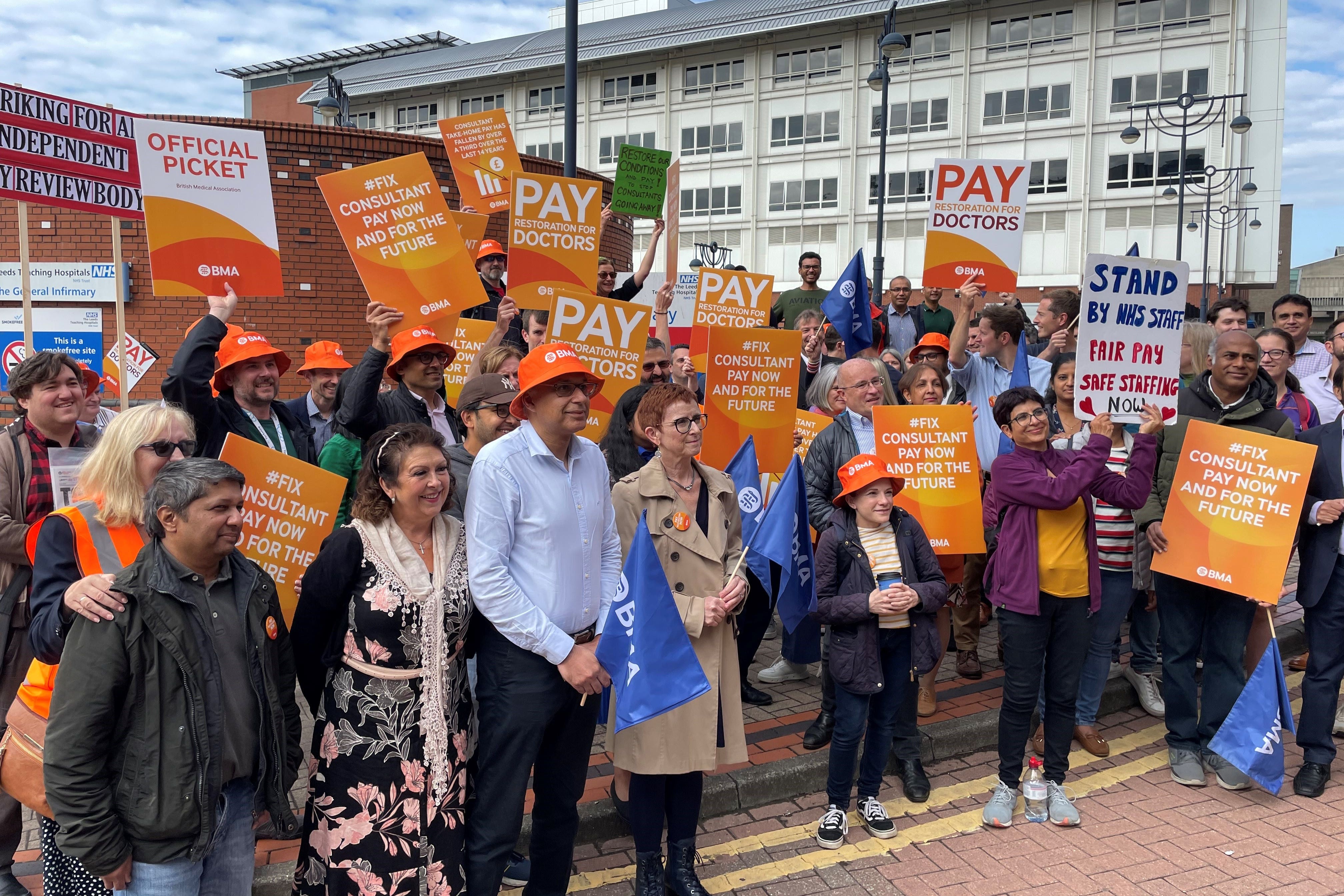All you need to know as Government reaches a deal with consultants
The move paves the way for strikes by top hospital doctors to end.

Your support helps us to tell the story
From reproductive rights to climate change to Big Tech, The Independent is on the ground when the story is developing. Whether it's investigating the financials of Elon Musk's pro-Trump PAC or producing our latest documentary, 'The A Word', which shines a light on the American women fighting for reproductive rights, we know how important it is to parse out the facts from the messaging.
At such a critical moment in US history, we need reporters on the ground. Your donation allows us to keep sending journalists to speak to both sides of the story.
The Independent is trusted by Americans across the entire political spectrum. And unlike many other quality news outlets, we choose not to lock Americans out of our reporting and analysis with paywalls. We believe quality journalism should be available to everyone, paid for by those who can afford it.
Your support makes all the difference.The Government and consultants have finally agreed a deal after being locked in talks for weeks.
Here’s all you need to know on the latest development in NHS doctors’ strikes in England.
– What has happened?
The Department of Health and Social Care (DHSC) said it reached an agreement with consultants from the British Medical Association (BMA) and the Hospital Consultants and Specialists Association (HCSA) after weeks of negotiations.
– Does this mean strikes are over?
Not quite yet. The deal will now be put to consultant members of the unions. If members agree to the deal, strikes by top hospital doctors will come to an end.
– What does the deal include?
Officials have agreed a deal which will see consultants earn more money from January 2024, though it will not be paid until April 2024.
There will be an increase to the starting salary for a consultant, and to the salary at the top of the new pay scale structure, the union said.
DHSC has also said that it will also work with unions to “review the operation” of the pay review body (Doctors and Dentists Remuneration) which advises Government on doctor pay.
Meanwhile, the BMA has agreed to end the use of its controversial rate card – which advises doctors on how much to charge for non-contractual work, including cover, during strikes, DHSC said.
– Didn’t the Government say that pay for 2023/24 was “off the table” during talks?
The Government did say said that headline pay for 2023/24 was not on the table during negotiations.
However, consultants have left the talks with a deal which will see them earn more money from January 2024, though it will not be paid until April 2024.
But, technically, the Government won’t be paying the uplift until the next financial year.
– So how much more will each doctor get?
The BMA said these proposals will mean that consultants will receive a minimum of 6% in 2023/24 as a result of the previously implemented pay award and the majority of consultants will also receive an additional uplift, of up to 12.8%, depending on their pay point.
– Is everyone happy with this deal?
The Royal College of Nursing said nurses will be “appalled” by the announcement.
The union’s chief nurse, Professor Nicola Ranger, said: “Nursing staff will be appalled by this announcement and where it leaves them. The government has shown it has the political will to reform pay for some of the highest earners in the NHS while our members are left with the lowest pay rise in the public sector.”
But other health commentators have expressed relief over the deal being struck, particularly as the NHS approaches another challenging winter.
– Why did consultants strike in the first place?
The BMA said pay for consultants has fallen by 35% in real terms since 2008/09.
The Government’s initial public sector pay offer saw consultants given a 6% rise.
The deal was imposed in the summer and as a result, frontline doctors ramped up strike efforts, with the most recent strike seeing both junior doctors and consultants on picket lines together.
– What has the impact of the strikes been on the NHS?
Strikes in the NHS – which have also included other staffing groups including nurses, physiotherapists and paramedics, have led to more than a million appointments, procedures and surgeries being rescheduled – with some patients facing disruption on multiple occasions.
The industrial action has also cost the NHS more than £1 billion.
– What about other doctors?
The Government has confirmed that talks with specialist, associate specialist and specialty (SAS) doctors and junior doctors are ongoing.